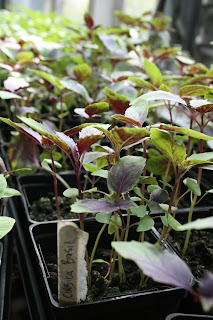"Well let's start from the beginning. One afternoon while my science class went out to the garden to help plant little seedlings I had this sudden feeling of belonging. Well all before this I did have an interest in plants before I came into the garden but that passion and interest for plants "blossomed" that morning. No pun intended xD. I eventually did learn a lot and when I wasn't in the garden I continued to do my own research when I went home and I was more and more intrigued each and every time I learned something new like what time to grow certain crops and how deep do you plant them. Also I learned about suckering tomato plants and not allowing certain crops to go to "seed" so you can harvest them more through out the season.
I also gained certain skills and knowledge. For example I learned to identify certain pests and diseases. I also learned about weeds to the point that I feel like going on people's lawns to pull the dandelions but I hold that feeling back (it's so hard to resist).
I think it's a good idea to learn to grow your food, you never know when something will happen in this oh so fragile society that we live in plus the money you spend on food is lessened somewhat when you grow your own. Also growing heirloom vegetables and food is encouraged because they aren't genetically tampered with (Monsanto cough cough) as well they taste a lot better than grocery bought food (because of that I like tomatoes now).
The most interesting thing I discovered? Well, I found out I love herbs and all their medicinal and culinary qualities. Because I know the name of plants, I look at a tree or a shrub a lot differently now, so that's good.
The greatest achievement was working with other people, as well as obtaining all this botany and herbal magic...er I mean knowledge (seeds are magical). Also, because I became so interested in plants I now grow a bunch of plants at home and hopefully throughout winter as well I might be growing some herbs inside. I might even start seeds for the garden during the final weeks of winter going on into spring next year.
The most challenging thing about the garden? Weeell i don't have any except pinching basil flowers, but that isn't so bad. All in all I love it there and I go during the mornings and lunch time and I'm looking forward to next year summer so I can wake up early to do something I will enjoy.
Also I think the community needs to know that there are teens out there that love doing such things and I also hope the garden raises awareness to growing YOUR OWN food as well as awareness about genetically modified vegetables. For example, tomatoes that have cold water fish genes in them so they can repel the cold better. That's right you're eating fish-tomatoes >:( .
We donate our food to food banks. Also, we did a cook day where we cooked food freshly picked from the garden, so that was quite educational. I also learned to cut vegetables and cook them as well. My first vegetarian meal :) . Hopefully it shall not be my last. Oh and we save seeds from our crops as well. I myself am a gardener that loves to save seeds.
Another point I would like to add is that gardening is so therapeutic. Because of gardening I have become an extremely cheerful and calm individual. I am also a lot less gloom (almost never these days.) Pretty much doing this kinda stuff made me a better person and I hope you find an interest as well.
- Shukar

















































